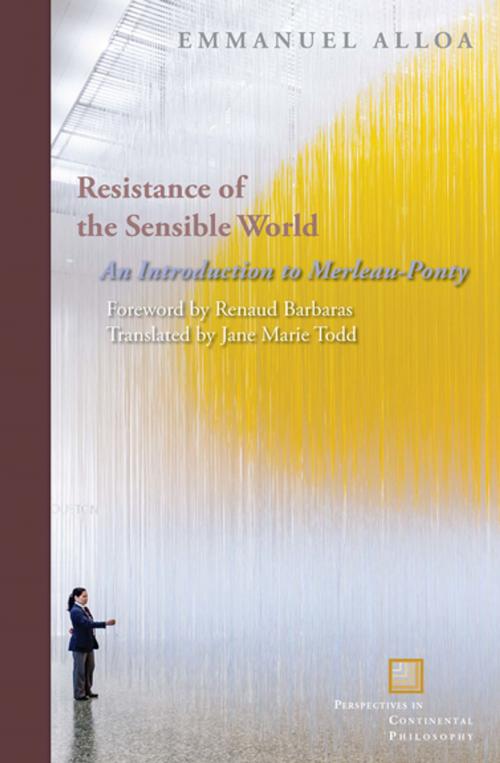Resistance of the Sensible World
An Introduction to Merleau-Ponty
Nonfiction, Religion & Spirituality, Philosophy, Phenomenology, Fiction & Literature, Literary Theory & Criticism, Theory| Author: | Emmanuel Alloa | ISBN: | 9780823275694 |
| Publisher: | Fordham University Press | Publication: | May 1, 2017 |
| Imprint: | Fordham University Press | Language: | English |
| Author: | Emmanuel Alloa |
| ISBN: | 9780823275694 |
| Publisher: | Fordham University Press |
| Publication: | May 1, 2017 |
| Imprint: | Fordham University Press |
| Language: | English |
In this book, Emmanuel Alloa offers a handrail for venturing into the complexities of the work of the French philosopher Maurice Merleau-Ponty (1908–61). Through a comprehensive analysis of the three main phases of Merleau-Ponty’s thinking and a thorough knowledge of his many unpublished manuscripts, the author traces how Merleau-Ponty’s philosophy evolved and exposes the remarkable coherence that structures it from within.
Alloa teases out the continuity of a motive that traverses the entire oeuvre as a common thread. Merleau-Ponty struggled incessantly against any kind of ideology of transparency, whether of the world, of the self, of knowledge, or of the self’s relation to others.
Already translated into several languages, Alloa’s innovative reading of this crucially important thinker shows why the issues Merleau-Ponty raised are, more than ever, those of our time.
In this book, Emmanuel Alloa offers a handrail for venturing into the complexities of the work of the French philosopher Maurice Merleau-Ponty (1908–61). Through a comprehensive analysis of the three main phases of Merleau-Ponty’s thinking and a thorough knowledge of his many unpublished manuscripts, the author traces how Merleau-Ponty’s philosophy evolved and exposes the remarkable coherence that structures it from within.
Alloa teases out the continuity of a motive that traverses the entire oeuvre as a common thread. Merleau-Ponty struggled incessantly against any kind of ideology of transparency, whether of the world, of the self, of knowledge, or of the self’s relation to others.
Already translated into several languages, Alloa’s innovative reading of this crucially important thinker shows why the issues Merleau-Ponty raised are, more than ever, those of our time.















